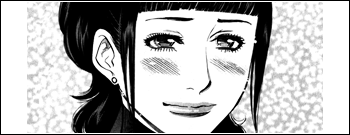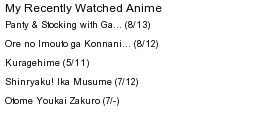I liked the way misogyny was portrayed in this episode. I found it to be scarily accurate.
First, the guy calling out to Koume. I can understand the misunderstanding if that really was a common method of confession, but he was awfully pushy even after Koume explained that she really did just drop her handkerchief by accident. He seems to take it as an invitation to just keep trying instead of simply apologizing for the misunderstanding and moving on.
Second, the boys' condition for accepting the girls' challenge: the conditions were very obviously given with the assumption they'd win in mind. Rather than laying actual conditions for a fair match, they instead put a condition of the MVP choosing one of the losers to have a rendezvous with. Obviously, they're not taking the girls seriously, and on top of that they're putting in a condition that one of them must spend time in private with one of the boys regardless of what they want. The teacher agreeing on their behalf and saying that's not a big deal does feel rather accurate to me too, sort of in line with how even other women were conditioned to think this was normal and even encourage the behavior, but the girls were obviously extremely uncomfortable with this proposition. For rightful reasoning, too, because girls should be allowed to play a sport without putting their autonomy on the line.
Third, the way the guys (particularly the one with a crush on Koume) weren't taking the girls seriously. The whole "mask covering up your pretty face" comment made me throw up in my mouth. Even today, women who have to cover up for any reason get told this, whether it's covering their face in a profession where that's the norm (medical field, mechanics/woodworking/welding, sports like fencing, scientific research) or covering their body in a profession where that's the norm (astronaut, anything that requires a hazmat suit, working in extreme cold, any other profession requiring heavy gear or body armor). Hell, even during the height of the pandemic, the number of comments on how "women's pretty faces shouldn't be hidden behind masks" was disgustingly high. That comment alone, and more importantly, the way the girls were very obviously disgusted by it, felt very realistic to me. But also, the way that he continued not taking the girls seriously and not playing for real was extremely accurate to how misogyny plays out in real life.
The only guy who seemed to have anything to say that was worthwhile was the guy that said they weren't bad for a team that's just been put together, but it'll take more than that to win. That was pretty important, because it reminds us as an audience that the reason the girls are losing isn't because they're girls, but because they lack experience. They just started learning to play, and they're playing against an organized team that's been doing this for quite some time. It sets up this idea that the guys have already been doing this for a long time and catching up to them will be extremely difficult. This is something that women in many fields have been able to relate to over the years when trying to break the glass ceiling and make a place for women in society. How could women compete with their male counterparts when their male counterparts seemed to be given all these opportunities from a young age just by being born male, whereas women had to fight tooth and nail just for the opportunity to try?
Also, the argument that Akiko's fiancé revoked the rendezvous rule in the end makes it okay is annoying. The fact that it was made at all is the problem, because it was made as a way to try and deter the girls from competing at all. That, and many of the boys seemed upset that it was revoked. I also liked how subtly they showed him being an absolute douchebag, because a lot of misogyny is this way, especially during that time period. The way he tries to be like, "Alright, you've proved your point, will you give it up now?" is really dismissive even if he tries to frame it in a way that makes him sound respectful and caring. Rather than encouraging her to keep trying, since she's obviously put in a lot of work, made great strides, and found other girls who want to do their best to improve, too, he tries to get her to give up. Rather than seeing and encouraging her passion, he just sees this as a long-con attempt at being petty, when it's obvious at this point that she has genuine drive and the desire to keep playing.
Another thing I really like about this show is that rather than portraying misogyny as "a product of its time" and having all the female characters resigning to it being the norm, the show actively shows these girls feeling uncomfortable, hurt, disrespected, and pissed off, in their own ways. Obviously, a lot of the feelings are things they keep inside, but from their reactions, you can tell. It's historically accurate in that way. Much of the time, these women responded to misogyny in more "quiet" ways, but that doesn't mean they just shut up and took it. It doesn't mean they didn't feel hurt or disrespected by misogyny!
Many female characters in anime also react to misogyny in ways that feel either unserious (hitting the pervy guy commenting on their bodies over the head but still hanging out with him anyways?!?!) or as if they actually LIKE it (blushy shyness/tsundere comments, the whole "well she has a crush on him actually so it's okay that he says and does things like that" justification). Or the episode will visually frame female bodies in a very objectifying manner at the same time they try to critique misogyny, which sort of contradicts the whole point.
What I'm trying to say is, it's a refreshing change from what I'm used to seeing, and I hope that it continues to be this way as I watch. I also reeeeally hope they don't try to make Akiko's fiancé just be like, "Oh, you were right! I'm so sorry and I've totally changef my mind!" at the end and having Akiko just accept this. Knowing how most stories go, I'm pretty sure they'll just have her accept it, basically framing the story as a "If you work hard enough, you'll get the approval of males, so keep at it!" tale, which I also hate, but a woman can dream. I just reeeeally hope the message in the end is less of a "work hard for male approval" and more of a "work hard to foster pride in yourself, work hard to find companionship with others, and work hard for a love of what you do". |



























